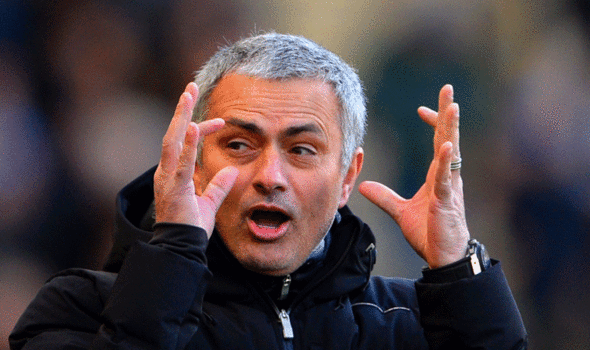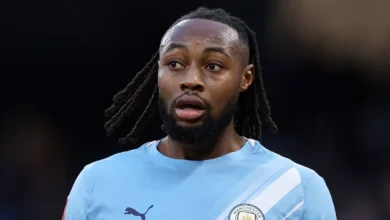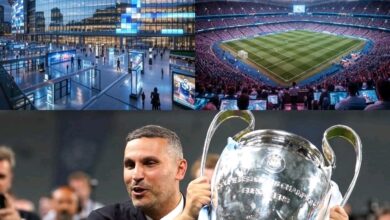Jose Mourinho ‘planned to attend Chelsea games’ before Benfica appointment – but Blues have no intention to offer homecoming welcome to ‘Judas’ for Champions League tie

Football is full of returns, but not all of them are welcomed. Some bring tears of joy, while others reopen old wounds. And when the name is Jose Mourinho, there is never any middle ground. You either love him or you hate him. You either call him “The Special One” or “Judas.” For Chelsea fans, the feelings have long been complicated, and now the story is taking another dramatic turn as Mourinho prepares to walk back into Stamford Bridge with his new team Benfica in the Champions League.
The timing, the history, the emotions—all of it makes this one of the most anticipated fixtures of the season. Not just because it’s a big European clash, but because it is Mourinho. Because it is Stamford Bridge. Because this is a reunion no one truly asked for, yet one that football destiny has delivered once again.
Only a few weeks ago, Mourinho was managing Fenerbahçe in Turkey. His job looked like a fresh start after many ups and downs in his career. But football can be cruel. Failure to secure Champions League qualification proved costly, and the club decided to sack him. Just like that, Mourinho was once again on the market, a free agent, a wandering manager looking for a new stage.
And Benfica came calling. For Mourinho, it was both ironic and poetic. Benfica was where his story as a head coach truly began back in 2000, albeit very briefly. He only lasted a few months, but it planted the seed of what would become a legendary career. Now, at 61, he returns to the Lisbon giants not as an unknown rookie but as one of the most famous managers in the world, carrying both glory and scars.
What makes this story so electric is not just that Mourinho is coaching Benfica. It is that his very first big challenge with them in Europe is against Chelsea—his old love, his old battlefield, his old story.
Chelsea is the club where Mourinho truly became the “Special One.” When he arrived in 2004, he transformed English football. He brought swagger, mind games, defensive strength, and most importantly, trophies. He delivered Chelsea their first Premier League title in 50 years. He built a dynasty with players like John Terry, Frank Lampard, Didier Drogba, and Petr Čech. He gave the club its winning identity.
But the story was never smooth. Twice he left the club in controversy. Twice he returned to face them as the enemy—first with Manchester United, then with Tottenham. And both times, the fans who once adored him made their feelings clear. In 2017, they chanted “Judas” as he stood in the opposition dugout at Stamford Bridge. Mourinho, never one to stay quiet, raised three fingers to remind them how many league titles he had given them.
Now, in 2025, Mourinho returns again. This time with Benfica, carrying Portuguese pride and his own reputation to protect. But the Chelsea hierarchy has made it clear: there will be no red carpet, no tributes, no warm welcome. Stamford Bridge will treat him as just another opponent.
For some Chelsea fans, this is the right call. They argue that Mourinho burned too many bridges, that his clashes with the club after leaving created bitterness. For others, it is heartbreaking. They believe Mourinho deserves at least some recognition for what he built, no matter what happened later.
But one thing is certain: the night will be fiery. Stamford Bridge under the lights, a Champions League clash, Mourinho back in London—it has all the ingredients of drama.
Older Chelsea supporters, those who lived through the 2004–2007 glory years, still hold Mourinho in their hearts. For them, he will always be the one who turned Chelsea into winners. They might not chant his name loudly anymore, but deep down they still respect him.
Younger fans, however, often see him differently. They remember the bitter end, the arguments, the public fights, the times he came back with rival clubs. For them, he is no longer a hero. He is the past, someone to be booed, not celebrated.
This divide will be visible when Benfica arrive. Some fans will clap quietly, others will jeer loudly, and Mourinho will feed off it all. Because that is what he does—he thrives on being loved, but he also thrives on being hated
If there is one thing Mourinho loves, it is proving people wrong. He will arrive at Stamford Bridge with a fire in his eyes. For him, this is not just another Champions League group-stage game. This is personal. This is a chance to remind Chelsea what they lost.
Expect him to use every trick in his book. The mind games, the press conferences, the gestures to the crowd—Mourinho knows how to turn a match into a spectacle. He will want his Benfica players to feel like warriors, to believe they are fighting for something bigger than football.
And if he gets a result at Stamford Bridge, you can be sure he will let everyone know. He will stand tall, chest out, and remind the world that the “Special One” still has magic left.
For Chelsea, the match is more than just about Mourinho. They are in the middle of their own project, trying to rebuild under a new manager and young squad. The club has spent heavily, trying to find stability after years of turbulence. Facing Mourinho and Benfica is just another test in their European journey.
But emotionally, they cannot escape the shadow of history. The presence of Mourinho will hang over the stadium. Every question in the press, every camera shot on the touchline, every chant from the stands—it will all remind them of what once was and what now is.
Chelsea’s board has already decided not to play into the narrative. No tributes, no welcome party, no gestures. For them, this is a new Chelsea. The Mourinho era is over. The club has moved on, and they want to make that clear
For Benfica, this is about more than nostalgia. This is a chance to show they belong at the top of Europe again. Portuguese clubs often feel overshadowed by the giants of England, Spain, Germany, and Italy. Mourinho’s arrival brings them attention, belief, and a sense of fearlessness.
Beating Chelsea at Stamford Bridge would send a powerful message. It would not just be Mourinho’s revenge—it would be Benfica’s statement. It would remind the world that Portuguese football still has teeth, still has warriors ready to fight.
Mourinho’s legacy is complicated. He is one of the most successful managers of all time, with Champions League titles, league crowns in multiple countries, and countless cups. But his career has also been marked by conflicts, sackings, and the feeling that his best days are behind him.
This return to Chelsea could go either way. If Benfica are humiliated, critics will say Mourinho is finished, a shadow of his former self. If Benfica fight and win, or even draw, the narrative will change. People will say the old fire still burns, that Mourinho can still outwit the giants.
Either way, the story will add another chapter to his dramatic career.
As the clock ticks down to September 30, all eyes turn to Stamford Bridge. The atmosphere will be tense. The Champions League anthem will play, the crowd will roar, and Mourinho will step into the stadium where he once ruled as king.
Will he be greeted with boos or applause? Probably both. Will he look shaken or defiant? Almost certainly defiant. Will Chelsea show him respect? Not officially, no.
But the truth is, no matter how the club tries to downplay it, the night will not just be about Chelsea vs Benfica. It will be about Chelsea vs Mourinho. It will be about memory, about betrayal, about love lost and respect demanded.
And somewhere in the noise, somewhere in the chants, somewhere in the glare of the floodlights, the story of Jose Mourinho and Chelsea will continue—unfinished, unresolved, and unforgettable.















